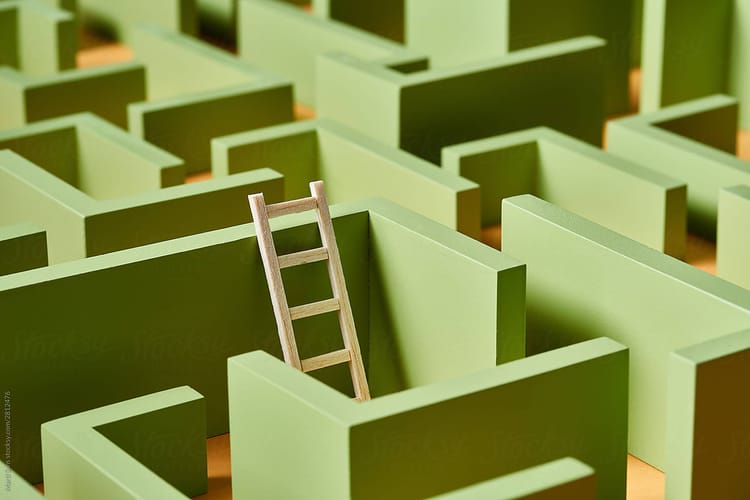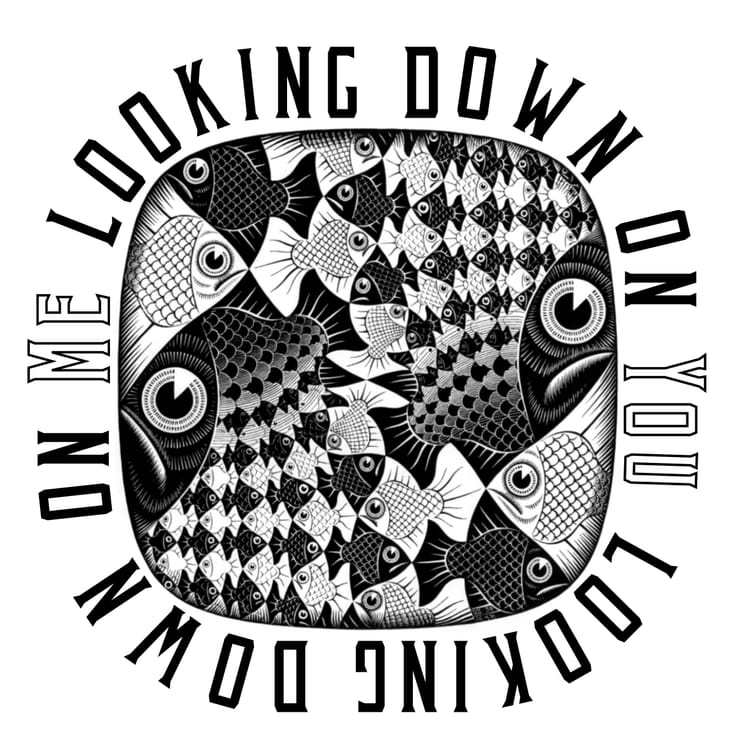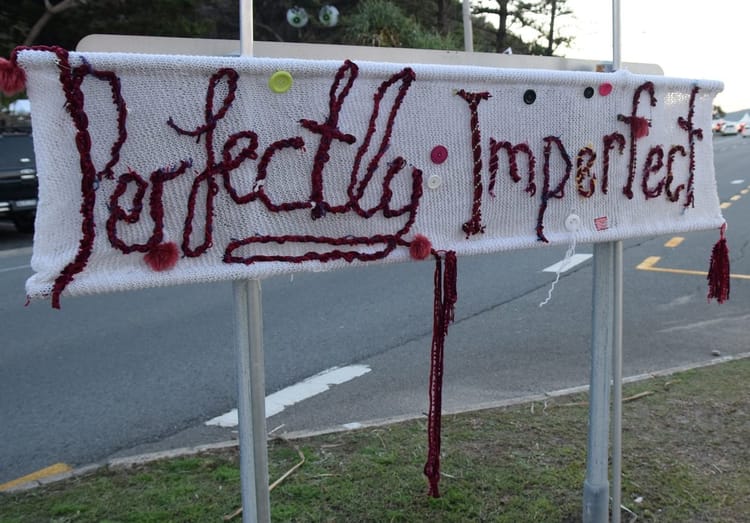Shot Down In a Blaze of Glory

This morning I was called an arrogant dink and a pompous ass. I figured it would come down to this. I might have even deserved it.
In the past few weeks, I've engaged in social media like never before. Called to both listen and speak out, I went deeper than I have ever gone in reading, researching, commenting and debating content that scrolled through my Facebook feed. I knew I was in trouble the moment I broke my own rule — the one that said not to engage in polarized discussions on a platform better suited to spreading views than empowering dialogue. But I don't regret it.
I went in with the best of intentions, telling myself I had no agenda. In hindsight, I know that was rubbish. I had a very clear agenda, even if I didn't realize it: to seek truth and challenge mistruth. I was quickly reminded that truth is as elusive as it is difficult to define.
I've heard that there is only one truth; and I've heard that there are infinite truths. Both of those statements resonate with me. It seems that we live in constant paradox. For some of us, that means a constant search for the truth — or truths — that define our existence. The deeper I dive into fact-finding, the more difficult it becomes to understand whether I am seeing multiple truths or merely different perspectives on the same truth. And the deeper I dive, the more difficult it becomes to separate fact from fiction.
"The belief that there is only one truth, and that oneself is in possession of it, is the root of all evil in the world."
Max Born
This morning, when I awoke to the message lambasting me for my so-called arrogance and pompousness, I was only surprised that I had lasted this long. A few days ago, I realized that my brief dive into social media was unsustainable — that I would burn out if I did not pace myself. But I found it difficult to pace myself in such a quagmire of memes and banter — content which called for me to either: (a) take a deep breath and scroll; or (b) dive into the rabbit hole. After years of mostly breathing and scrolling, I decided to dive in headfirst for a change.
I've tried this before, a few times. About a year ago, I commented in support of a friend who posted about a toxic male uttering homophobic slurs. I said something about how awful it is that wounded boys so often end up wounding others. I was immediately attacked by someone I'd never met for "centering white male privilege", and for putting the focus on the perpetrator as victim. In an attempt to explain myself, I went on to be accused of sexism and misogyny. I was angry and frustrated, but rather than spew reactive hatred across the web, I exited that thread and turned to my daughter (who is far more educated in LGBTQ+ issues than I am) for input. She taught me: (a) what "centering white male privilege" actually means; and (b) about some current events that had led to a very heated debate about centering, which likely triggered the woman who criticized me. After much reflection, I re-read the comment thread and decided that I was okay with everything I had said. But I was wiser for the experience, both about the topic itself and about the danger of commenting on a potentially volatile issue.
- - - - - - - - - - - - - - -
I have come to believe that the Share button (or "retweet" in Twitter lingo) is one of the most dangerous inventions in modern history. This button, which allows people to spread content without a shred of research or a second thought, is responsible for spreading and perpetuating hatred and falsehoods in exponential fashion. Sure, it also allows us to share beauty and inspiration in record time, but so much of what crosses our timelines is polarizing content created by people with deep agendas and questionable ethics. I'm sure we all want our content to be shared — but not all content is equally deserving of such a fate.
In the heart of my truth-seeking mission, I thought it would be worthwhile to to do some high-level analysis about the truthfulness of the content I viewed. But I quickly realized that I could spend a lifetime analyzing all the memes and stats and quotes, and not even come close to making sense of them. Still, I dove in to fact-finding, quickly uncovering blatant mistruths on many posts. I corrected a few people — some thanking me, some ignoring me, and some engaging in debate. Then I struck into a gas line, and a wiser me would have run for cover.
When I first uncovered a mistruth on the page of a "Facebook Friend" I recognized but did not know — a number that was off by a factor of 1,000 times — she thanked me. But when I challenged her on a conspiracy theory about Bill Gates funding chip-implants, she tore a strip off me and deleted my comments, mocking me in the process. I attempted to engage her positively via Messenger, but I received more insults before she unfriended me. I learned something from her, whether she knows it or not. Although I cannot bring myself to believe the myriad conspiracies she posts about — many of which come from extreme-right sources — our "dialogue" (if you can call it that) led me to dig deeper into fact-finding sites like Snopes and factcheck.org. Not that I've ever trusted them fully, but my most recent research has me questioning their biases. As I research research about research (yes, that's what I said), I find myself doubting anyone's ability to uncover definitive truths in a web that is as chaotic as it is vast.
“The truth has a million faces, but there is only one truth."
Hermann Hesse
What bothers me most — and why I am now stepping away from social media for a lengthy break — is not so much how easy it is for anyone to find content (data, graphs, articles and papers) that support their views; it is how determined many people are to seek it out and share it with the world. It's like everybody is standing on a soapbox now, trying to out-yell one another with increasingly large megaphones.
I spent over twenty years collecting and analyzing statistical data. One of the first things I learned when I began to conduct public opinion surveys was that for every question we ask, we open ourselves up to many new questions. Research, and learning in general, is a layered and infinite process. The more we try to boil it down into simple messages — memes, graphs and blurbs — the more we need to recognize that statements we consider to be endpoints are also starting points for new discussions.
- - - - - - - - - - - - - - -
Before I sign off from this post — and from my Facebook feed — I must say that what surprised me most from the past few weeks was how strongly I reacted to both "conservative" and "liberal" posts. I expected to be frustrated by the spread of content from far-right conservatives. But I was just as frustrated by liberal-minded friends posting content ranging from misleading to flat-out wrong. I confirmed to myself that I am open to hearing any argument, whether or not I agree with it, so long as it is presented in a rational and reasonable way. And conversely, I will not knowingly fight mistruths with mistruths, even for a cause I believe in.
I know that nobody wants to be corrected, and most of us recoil when challenged. I did not expect that everyone would welcome my comments with open arms, and I realize I probably have come across as arrogant or pompous. I don't mean to — I like to think that I'm easily humbled and very open-minded. But I also know that as much as I care how people feel, I can't waste my life worrying about what they think of me. Which is why I found myself up to my eyeballs in Facebook, engaged in multiple discussions — including my battle with a conspiracy theorist.
Ironically, if you are reading this, you likely found it on social media. I don't plan to read the comments section on Facebook, so if you want to criticize, challenge or commend me for anything I've written, please do so on my blog itself, or via Messenger (which I will still be checking).
I'm not retreating to monologue because it's easier than dialogue (though it is); I'm just taking a break from the chaos, allowing my mind to catch up. In all honesty (since I'm so into truth): I realized days ago that I was going to step away from social media, so I doubled down on my personal social media experiment — and I knew that I would most likely go out in a blaze of glory. That came to pass quicker than I expected, but it was kind of exhilarating while it lasted.





Member discussion